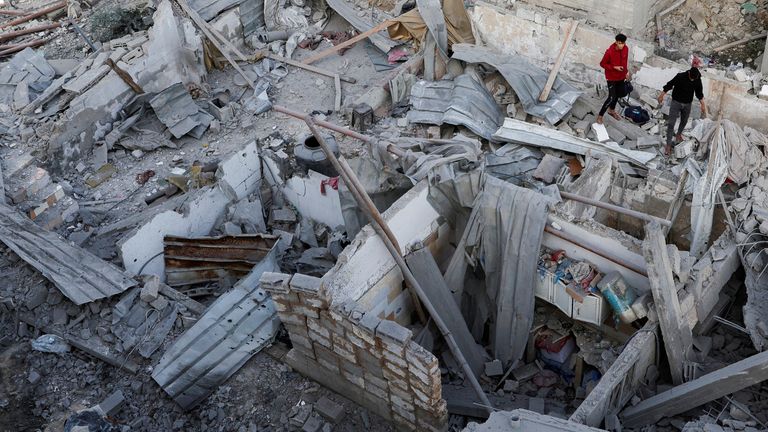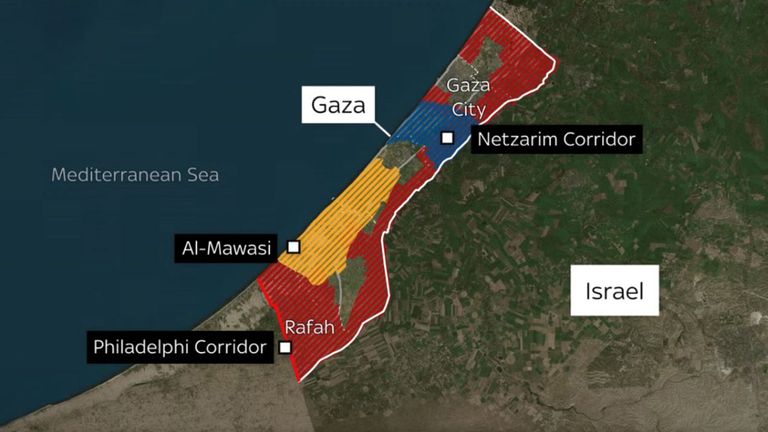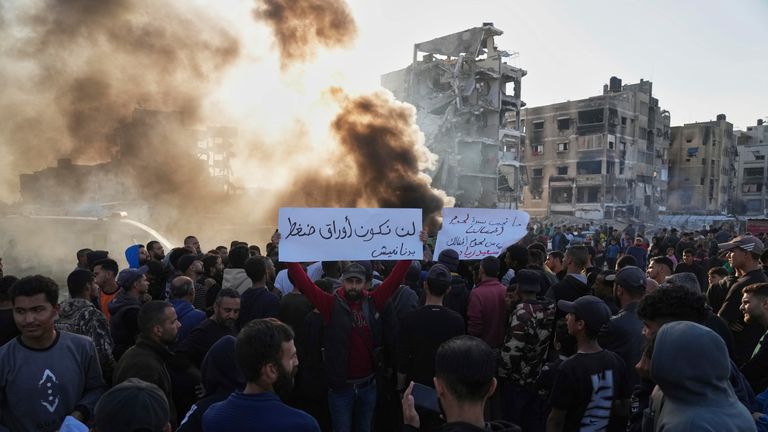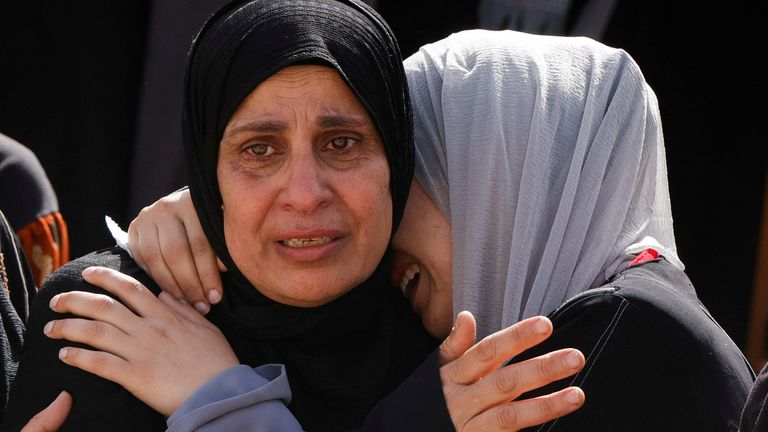
Israel is establishing a new security corridor across Gaza, Prime Minister Benjamin Netanyahu has announced, as his country plans to seize “large areas” of the Palestinian territory.
Mr Netanyahu said Israel was “increasing the pressure” on Hamas as it demands the militant group returns dozens of remaining hostages taken in the 7 October 2023 attack.
He said his troops were seizing an area he called the Morag Axis, a reference to a former Israeli settlement previously located in an area between the two southern cities of Rafah and Khan Younis.
Mr Netanyahu said in a video message that “we are now dividing the Strip and we are increasing pressure step by step so they will give us our hostages”.
The prime minister said the move, which would cut off Rafah from Khan Younis, would give Israel control of a second axis in southern Gaza.
That is in addition to the Philadelphi Corridor, running along the border with Egypt, which Israel sees as a key line stopping weapons being smuggled into Gaza.
Earlier, Israel’s defence minister Israel Katz said his country was beginning a major expansion of its military operation in the Strip and there would be a large-scale evacuation of the Palestinian population from fighting areas.
Mr Katz said the operation would clear out militants and infrastructure “and seize large areas that will be added to the security zones of the State of Israel”.
It comes as a wave of Israeli strikes killed more than 40 Palestinians, including several women and children, according to Palestinian health officials.
Israel controls a buffer zone along Gaza’s whole border and recently ordered the full evacuation of Rafah.
The expansion of Israel’s military operation in Gaza deepens its renewed offensive.
The ceasefire between Israel and Hamas that had begun in January ended in March as Israel launched various air strikes on targets across Gaza, and imposed a month-long halt to all imports of food, fuel and humanitarian aid.
The deal had seen the release of dozens of hostages and hundreds of Palestinian prisoners, but collapsed before it could move to phase two, which would have involved the release of all hostages and the withdrawal of Israeli forces from Gaza.
The Israel Defence Forces (IDF) had already issued evacuation warnings to Gazans living around Rafah and towards Khan Younis, telling them to move to the al Mawasi area on the shore, which was previously designated a humanitarian zone.
Israeli forces have already set up a significant buffer zone within Gaza, having expanded an area around the edge of the territory that had existed before the war, as well as a large security area in the so-called Netzarim corridor through the middle of Gaza.
This latest conflict began when Hamas launched an attack on Israel on 7 October 2023, killing around 1,200 people and taking around 250 hostages.
The ensuing Israeli offensive has killed more than 50,000 Palestinians, according to Gaza’s Hamas-run health ministry.
It does not distinguish between civilians and combatants in its count, but has previously said more than half of those killed in the conflict were women and children.
Read more:
Father demands protection after Gaza aid workers’ deaths
Anti-Hamas chants heard at rare protest in Gaza
Aid group Doctors Without Borders warned on Wednesday that Israel’s month-long siege of Gaza means some critical medications are now short in supply and are running out, leaving Palestinians at risk of losing vital healthcare.
“The Israeli authorities’ have condemned the people of Gaza to unbearable suffering with their deadly siege,” said Myriam Laaroussi, the group’s emergency coordinator in Gaza.
“This deliberate infliction of harm on people is like a slow death; it must end immediately.”


